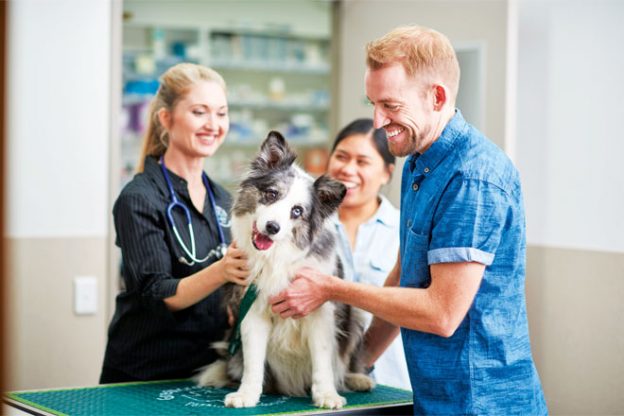
Brought to you by Greencross Vets
Watching our pets grow older is a comforting and rewarding experience. It’s hard to believe the same bundle of energy that would rush around the yard or jump from one piece of furniture to another, is now the same calm and kind old friend curled at our feet.
Dogs and cats age approximately seven years to our one year and are generally considered senior pets from seven years of age. Because they age so rapidly, their risk of developing disease or illness increases and can progress quite quickly.
The signs of ageing can be subtle in our pets, especially our feline friends. You may notice outward signs such as:
- Greying around the face
- Less energy and sleeping more
- Trouble toileting
- Difficulty rising or walking
- Reluctance to jump from heights
- Drinking or eating more or less
Then there are the internal signs we can’t see without a comprehensive examination and diagnostic testing performed by your veterinarian. The key to a long and healthy life is early detection. Our senior pets are more susceptible to a number of health conditions, including:
- Dental disease
- Diabetes
- Kidney and liver disease
- Heart disease
- Arthritis
- Cancer
Visiting your vet twice a year will help slow down and even prevent the development of such diseases, allowing your pet to live the healthiest and longest life possible. During a senior health check, you can expect a thorough examination of your pet’s joints, eyes, ears, teeth, skin, coat, respiratory system and also an assessment of its dietary requirements.
Often a sample of your pet’s urine and blood is taken for diagnostic testing to help determine any underlying or early signs of health issues that are not visible to the naked eye. Diagnostic testing can help to identify changes in your pet’s body that may require close monitoring or early treatment.
Making small adjustments to your pet’s home environment can help as they start showing signs of ageing. Things to consider when living with a senior pet include:
- Providing easy access to food and water
- Being patient and slowing down your walks
- Keeping them cool in summer and warm in winter
- Comfortable bedding




